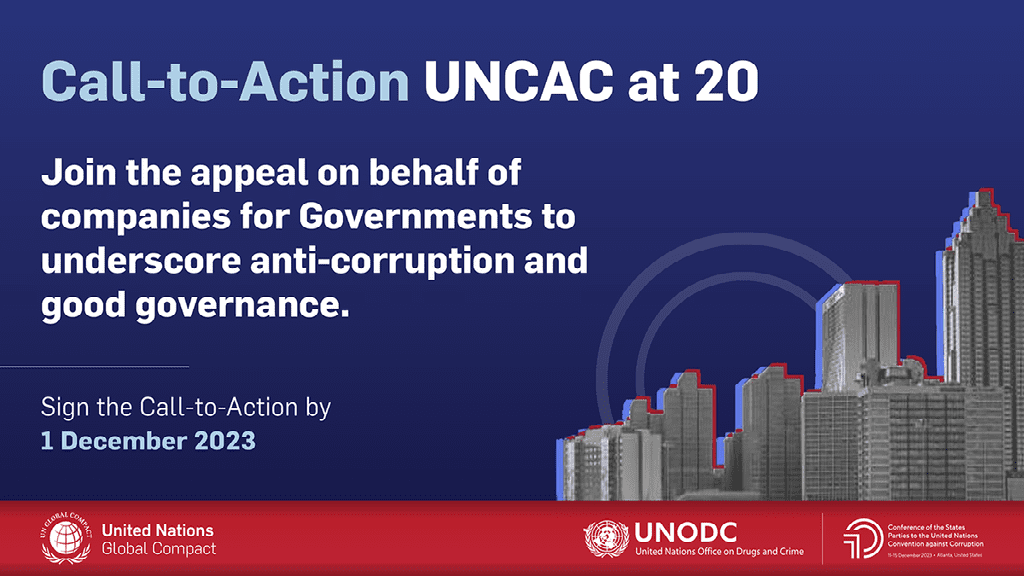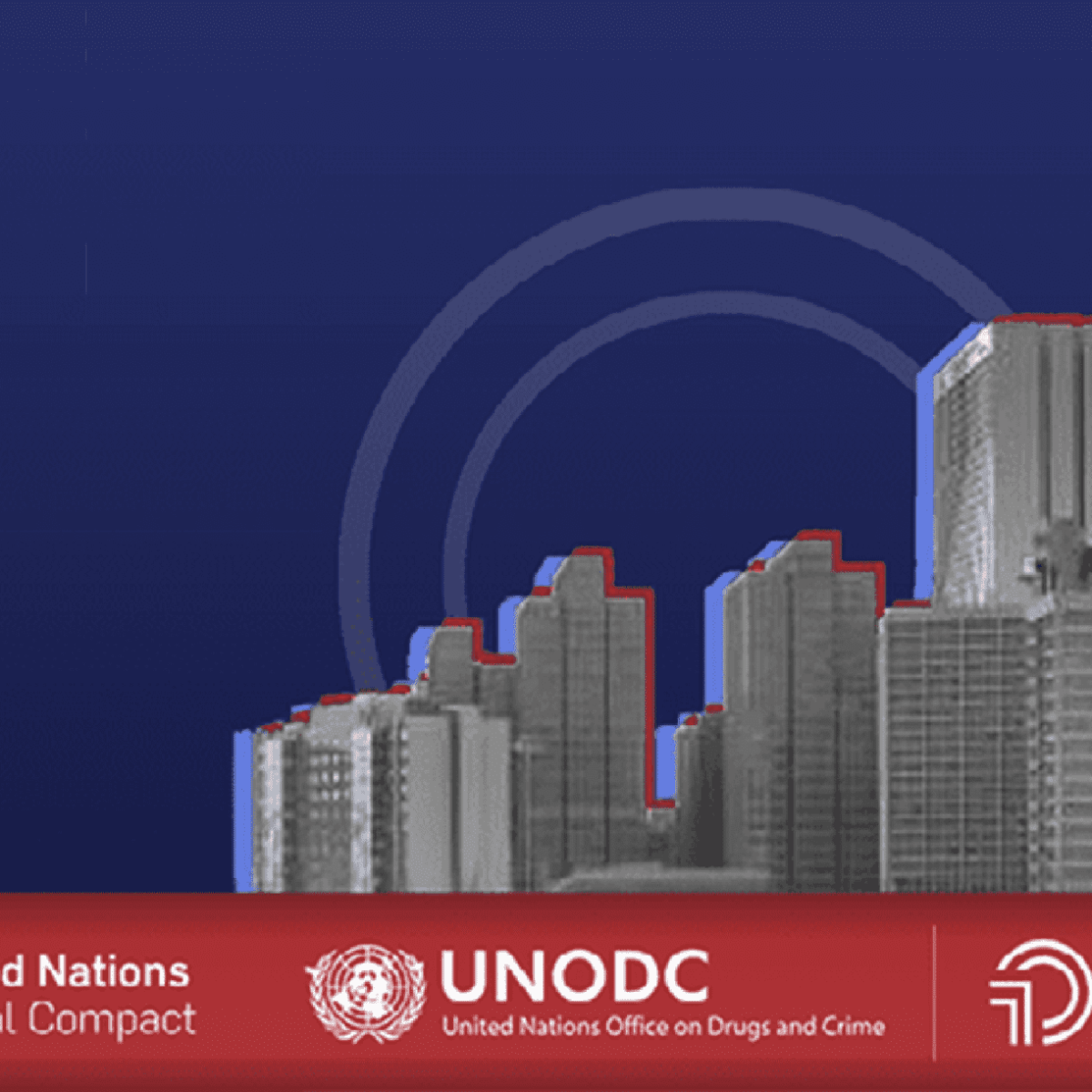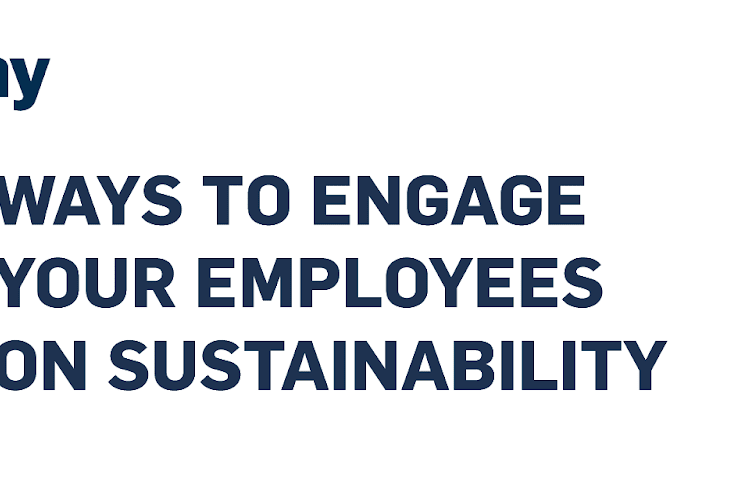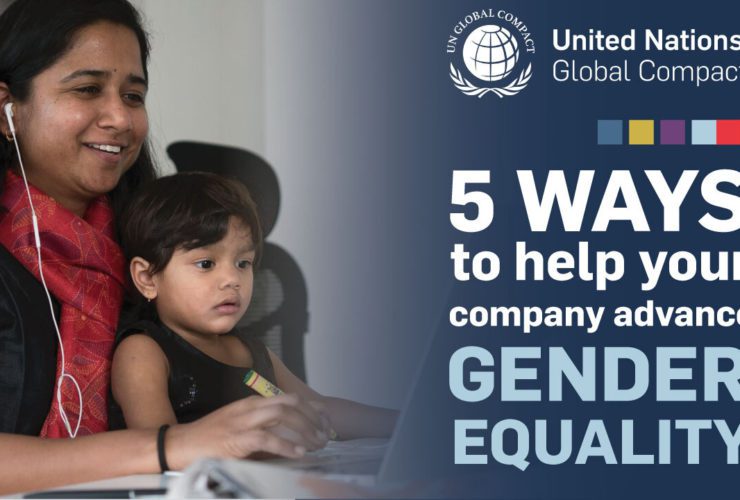The Call-to-Action on the 20th anniversary of the UN Convention against Corruption (UNCAC), is put forward as an appeal by companies to governments to intensify efforts to tackle corruption affecting business communities around the world, and to join forces in this endeavor. The Call-to-Action urges governments to underscore anti-corruption and good governance as fundamental pillars of a sustainable and inclusive global economy and embrace them as important tenets of the 2030 Agenda for Sustainable Development. Concretely, this Call-to-Action, signed by companies across the world, will be submitted at the tenth session of the Conference of the States Parties (CoSP10) to serve as basis for governments discussions and decisions on this matter.

Why are companies called upon to sign the Call to Action?
Business leaders around the world are invited to sign the Call-to-Action, amongst others, to:
- Demonstrate ethical leadership and commitment to sustainability, transformational governance, business integrity and the fight against corruption.
- Gain a competitive advantage in attracting sustainability-minded investors, employees, partners and consumers who value business integrity.
- Contribute to level a playing field that translates into greater certainty for long term investment, fair competition, and thus better quality of products and services.
- Amplify the voice of the private sector toward the adoption and effective implementation of anti-corruption resolutions, policies and legal frameworks.
Tackling corruption requires a Collective Action approach. By signing this Call-to-Action, companies not only encourage governments to strengthen efforts, but they also show their willingness to join forces and inspire other companies to follow their lead.
What is the business-led appeal to governments in the Call-to-Action?
The Call-to-Action was developed during the 2023 UN Global Compact Leaders Summit, in New York. It calls on Governments to:
- Effectively implement the tenets of the UN Convention against Corruption to level the playing field, taking into account the diversity of contexts and the challenges faced by the business community worldwide. On that basis, strengthen policies, legal frameworks and mechanisms to incentivize business integrity in companies along the supply chain and to tackle impunity by detecting and sanctioning wrongdoing.
- In Government decision-making processes, especially for investments and public procurement, increase the use of corporate sustainability criteria in order to advance SDG focused business. In public-private interactions, strive for greater transparency, including in the management of conflicts of interest and through the prevention of undue influence.
- Foster a Collective Action approach to strengthen governance and anti-corruption by means of public-private partnerships, dialogue and the engagement of all relevant actors to generate inclusive and innovative solutions for the broader benefit of people and the planet.
- Leverage information and communication technology (ICT) along with artificial intelligence to manage corruption risks and make evidence-based decisions while strengthening oversight and transparency. To boost accountability, encourage the use of ICT to monitor, evaluate and report governance and anti-corruption efforts undertaken by the public and private sectors.
- Promote the principles of ethical leadership in education by instilling skills that nurture the minds of future business leaders, ensuring their commitment to standards of fairness and integrity in the workplace of tomorrow.
How can companies support the Call-to-Action?
All companies are invited to support the Call-to-Action at the C-suite (or equivalent) level. To be included, please complete this form by December 1, 2023. All submissions will be verified before publication.
More information
FAQ Call to Action anti corrpution
More Actions that You Can Take






